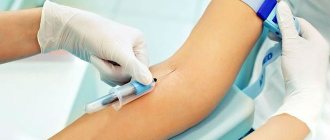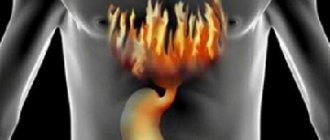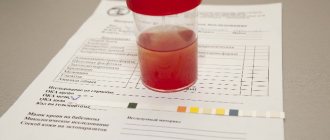High-density lipoprotein (HDL) is also called “good” cholesterol. Having high levels of HDL helps move cholesterol from the arteries to the liver, where the body can use it or excrete it.
HDL also has antioxidant and anti-inflammatory effects and reduces the risk of cardiovascular disease.
The minimum HDL blood level is 40 mg/dL per deciliter (mg/dL) in men and 50 mg/dL in women. Although genetics plays a role in HDL levels, there are several other factors.
What you need to know about cholesterol?
The content of the article
Cholesterol is a lipoprotein. Lipoprotein is a combination of fats and proteins. Most of the cholesterol (80%) is produced in the liver, 20% of it enters the body with food. A person needs no more than 300 mg of cholesterol per day.
Cholesterol performs several important functions:
- responsible for the formation of cell membranes, maintaining their strength and elasticity;
- participates in the production of bile by the liver;
- participates in the synthesis of vitamin D;
- participates in the synthesis of sex hormones;
- protects the nervous system;
- participates in metabolic processes.
Symptoms of high cholesterol
It is possible to determine the exact level of cholesterol in the body only after an analysis, but there are symptoms that may indicate the presence of disturbances in the functioning of the body. This will not allow you to make a diagnosis, but it should be a reason to visit a lipidologist or cardiologist. Make an appointment for a preventive appointment if:
- physical activity or excessive anxiety provokes the appearance of aching pain in the chest;
- even minor physical activity causes a feeling of lack of oxygen;
- you begin to get tired faster, and fatigue is accompanied by a feeling of heaviness in the chest area;
- you often have a headache for no reason, there is noise in your ears, you feel oxygen starvation to the point of fainting.
If you notice the symptoms described, make an appointment with your doctor. It will be enough to visit a therapist so that he can conduct a preventive examination and, if necessary, refer you to other specialized specialists.
The diagnosis of atherosclerosis is difficult to make without biochemical and instrumental examination, so be prepared for the fact that you will have to undergo a series of tests. The examination usually begins with a blood test and an ECG.
. Then, depending on the results obtained, a treatment program is prescribed, if necessary. The patient’s blood is usually taken from a vein, but if a quick result is needed, it can be obtained using the express method by drawing blood from a finger. To obtain more accurate results, it is recommended to donate blood on an empty stomach.
What is cholesterol?
Low-density cholesterol (LDL)
– this is “bad” cholesterol. It settles on the walls of blood vessels and forms plaques. They grow over time and narrow the arteries, complicating or completely blocking blood supply to the heart and brain. As a result, the supply of oxygen and nutrients to these organs is disrupted.
High LDL levels are a leading cause of cardiovascular disease, heart attack, heart attack and stroke. LDL also has positive benefits, for example, it neutralizes harmful toxins.
Sources of “bad” cholesterol are animal products: pork, beef, bacon, chicken leg and fried skin, sausage, egg yolks, sour cream, cream, hard cheeses, cottage cheese, chocolate.
High density cholesterol (HDL)
- This is “good” cholesterol. It plays a structural role in cells, takes part in the synthesis of hormones and vitamin D. The liver produces bile acids, which help process fat in the small intestine, from “good” cholesterol.
“Good” cholesterol binds “bad” cholesterol and heavy triglycerides, removes them from cells, and transports them to the liver for processing. It helps prevent cardiovascular diseases.
Sources of “good” cholesterol: wild salmon, mackerel, tuna, halibut, avocado, olive oil, walnuts.
Triglycerides
are part of very low-density lipoproteins (VLDL), which are involved in the formation of cholesterol plaques. Increased levels of these fats in the blood can lead to heart disease and diabetes. After eating, the body converts excess calories into triglycerides. They accumulate in fat cells.
Problems arise if cholesterol levels exceed 5.0 mmol/L.
It is important to know the blood levels of all types of cholesterol. This:
- total cholesterol;
- low-density cholesterol (LDL) or “bad cholesterol”;
- high-density cholesterol (HDL) or “good” cholesterol;
- triglycerides.
What causes cholesterol to rise?
Up to 80% of total cholesterol is synthesized by the human body from fats and only 20% comes to us with food. Moreover, this organic substance is contained exclusively in products of animal origin.
Until recently, it was the abuse of animal fats that was considered the main cause of high cholesterol, but as it turns out, this is not an entirely correct assumption. There are no high or low density lipoproteins in food; they become so during processing in our body. Therefore, metabolic disorders, endocrine diseases, diseases of the liver, intestines and adrenal glands are the main causes of high cholesterol.
At risk of increased LDL and early development of atherosclerosis are:
- patients with diabetes mellitus, obesity;
- people with endocrine diseases, for example, hypothyroidism, deficiency of sex hormones;
- women over 50 years of age, as well as men over 35 years of age;
- people with bad habits;
- patients with diseases of the kidneys, liver, pancreas;
- patients with a hereditary predisposition;
- women who have been taking hormonal medications for a long time.
People at risk should definitely undergo a blood cholesterol test. Because they are susceptible to heart and vascular diseases.
The risk of high blood cholesterol increases with predisposing factors. These include a sedentary lifestyle, bad habits, overeating, an abundance of unhealthy and fatty foods, deficiency of vitamin D, omega-3 polyunsaturated fatty acids in the diet.
High cholesterol in women is more often due to excess weight or low estrogen levels. Typically, this problem occurs during menopause. High cholesterol in men occurs at a younger age, after 35 years. The reason for this is bad habits and poor nutrition.
Causes of High Cholesterol
Causes of high cholesterol can be:
- overweight;
- eating large amounts of sweet and fatty foods;
- smoking;
- alcohol consumption;
- sedentary lifestyle;
- pregnancy.
High cholesterol is characteristic of certain diseases:
- congenital hyperlipidemia;
- pathologies of the hepatobiliary system;
- pancreas cancer;
- diabetes;
- hypothyroidism;
- kidney pathologies.
Ways to Increase HDL Cholesterol
Olive oil in nutrition
Saturated fats, found in dairy products and fatty meats, increase LDL and HDL levels in the blood. Replacing these saturated fats with “healthy fats” (polyunsaturated or monounsaturated fats from nuts, seeds, avocados, vegetable oils) has been shown in studies to help lower LDL levels. []
Numerous studies have also shown that supplementing your diet with olive oil can help lower total cholesterol and increase high-density lipoprotein (HDL) levels. Olive oil contains antioxidants called polyphenols, which are responsible for its protective properties for the cardiovascular system. []
Olive oil also improves cholesterol profiles by improving the ability of HDL to properly interact with cholesterol. A study of 26 healthy volunteers suggests that olive oil ( 25 ml/day or 2 tablespoons ) improves cholesterol levels by increasing the production of ABCA1 and ABCG1 proteins, which are essential for the transport of fats across cell membranes. []
Olive oil also helps enhance the anti-inflammatory properties of HDL. Another study of 20 healthy adults found that drinking 25 ml of extra virgin olive oil per day for 12 weeks increased the amount of protein associated with HDL (paraoxonase 1), which helps HDL exert its anti-inflammatory properties. []
Eggs in the diet
A small study of 28 obese people found that a low-carbohydrate diet supplemented with 3 eggs per day increased high-density lipoprotein (HDL) levels by 25%. Including eggs in the diet helped reduce the risk of developing metabolic syndrome. And this effect was more pronounced in obese people. []
In another study of 15 obese people, 3 chicken eggs a day also increased HDL (“good” cholesterol) levels by 52%. However, this second study was sponsored by the American Chicken Egg Association. []
Another study involving 42 elderly men and women demonstrated that 3 chicken eggs per day increased HDL cholesterol by 23%. []
And a study of older adults taking statins and eating 4 eggs a day concluded that these people experienced a 5% increase in HDL levels over 5 weeks without an increase in LDL (“bad” cholesterol). []
Low Carb Diet
Reducing carbohydrates in the diet
Numerous studies demonstrate that reducing carbohydrates and increasing healthy fats in your diet can provide many health benefits, including lower blood sugar , weight loss , and improved insulin sensitivity . Another big benefit of this diet is the increase in high-density lipoprotein (HDL). []
In a randomized controlled trial of 115 obese adults with type 2 diabetes consuming less than 50 g. carbohydrates per day, as a result of weight loss, there was an increase in HDL cholesterol levels almost 2 times higher than in those people who did not switch to such a diet. []
Overweight people with diabetes (a total of 194 people) followed Mediterranean diet for 12 months in a randomized trial. At the end of these 12 months, these people had an increase in HDL in their blood, which did not occur in those subjects who simply followed a Mediterranean diet without reducing the amount of carbohydrates. []
In a prospective study, 22 obese adults with metabolic syndrome followed a “Spanish Mediterranean ketogenic diet” for 12 weeks. The long-term result of this diet was an increase in HDL levels in their blood, as well as the fact that their metabolic syndrome was completely cured . []
Another cohort study followed 64 obese adults for 56 weeks while on a ketogenic diet . The result of this experiment was an increase in HDL levels and a decrease in total cholesterol levels along with a decrease in HDL (“bad” cholesterol). []
Fruits and vegetables containing anthocyanins
Fruits and vegetables with anthocyanins
Blueberries , blackberries, pomegranate, eggplant, red cabbage and other purple fruits and vegetables that are high in anthocyanins, which are powerful antioxidants, may help increase HDL cholesterol. []
In one experiment, 58 adults with diabetes were given 160 mg of anthocyanin concentrate twice daily for 24 weeks, which resulted in a 20% increase in HDL cholesterol. []
Another study of 120 patients with high cholesterol showed a nearly 14% increase in HDL cholesterol after 12 weeks of anthocyanin supplementation (160 mg, twice daily). []
Exercise stress
Exercise increases HDL in the blood through multiple pathways, and recent research suggests that any amount of physical activity can be beneficial, and its effects accumulate over time . []
A study involving 18 obese men and women for 12 weeks examined the effects of regular endurance training on HDL levels. As a result of the experiment, an increase in HDL in men and a favorable shift in HDL fractions in women was recorded. The important thing is that no diets were followed. []
The result of regular physical activity for 12 months: an increase in HDL and a decrease in LDL along with total cholesterol.
Another study (prospective observation) of 200 men found that an increase in HDL occurred with regular endurance training. However, the most significant positive changes occurred in patients who had high levels of harmful triglycerides in the blood and had a large amount of fat in the abdominal cavity (abdominal obesity). []
Weight loss
Many studies have shown that weight loss (losing weight), regardless of the diet used, necessarily increases the level of HDL (“good” cholesterol). A study of 3,480 Japanese adults showed that losing 3 kg of weight resulted in an average increase in high-density lipoprotein (HDL) levels of 4 mg/dL. []
Reducing alcohol consumption
The association between alcohol consumption (1 drink per day for women and 1-2 drinks per day for men) and a reduced risk of cardiovascular disease has been observed in many studies. However, increasing the amount of alcohol consumed above these designated values not only leads to a sharp increase in the risk of heart disease, but also stimulates the risk of developing many other diseases, such as diabetes or stroke. []
A study of 2,473 men and 1,530 women found that moderate (no more than 1-2 drinks per day, where the drink is 200 ml of wine or beer, but not spirits) alcohol consumption showed higher levels of HDL cholesterol. []
Adding coconut oil
Several studies have found that consuming edible coconut oil (usually about 2 tablespoons per day) can raise HDL levels more than other types of fat. Coconut oil also helps lower the LDL to HDL ratio, which can reduce the risk of heart disease. []
Oily fish in the diet
There are conflicting reports about the effect of consuming oily fish or fish oil supplements on HDL cholesterol levels. Some studies have noted an increase in HDL when participants consumed large amounts of fish, but the effects were minimal, and other studies have found an increase in HDL in response to increasing the amount of fish in the diet or taking supplements. []
Medicines
Note : When writing this section, we do not recommend these medications for use. We are simply providing information that is available in the scientific literature. Please discuss your medications with your doctor.
Statins
Statins can lower LDL cholesterol and increase HDL cholesterol. However, whether this actually has a significant impact on the risk of developing cardiovascular disease is still unclear. A meta-analysis of 12 large studies, including more than 26,000 patients, found that changing blood cholesterol levels with drugs has no beneficial effects, as people do not reduce their risk and remain at high risk of heart disease. []
Statins increase the risks of diabetes and insulin resistance (https://diabetes.diabetesjournals.org/content/63/11/3569)
Fibrates (alpha-agonists) or thiazolidinions
Fibrates and thiazolidinediones are two classes of compounds that activate the PPARα protein, which helps increase fat breakdown in the liver and other parts of the body. These drugs are sometimes used by patients who cannot tolerate statins and require an increase in HDL and a decrease in LDL.
Paradoxically, in some people and in rare cases, these drugs can cause a sharp decrease in HDL (“good” cholesterol). Therefore, it is very important to take fibrates and thiazolidinediones under the guidance of a doctor. []
Causes of very low cholesterol
Causes of very low cholesterol may include:
- acute infections;
- sepsis;
- extensive burns;
- fasting and a very strict diet;
- eating too many fatty acids (omegas).
Very low cholesterol can be a sign of diseases:
- hypolipoproteinemia;
- hyperthyroidism;
- liver cancer and other oncological diseases;
- liver cirrhosis, especially in the later stages;
- chronic anemia;
- bone marrow pathologies;
- chronic pulmonary pathology.
How to lower cholesterol levels?
To reduce the amount of cholesterol in the blood, you need to change your lifestyle:
- Watch your weight. An increase in body weight of half a kilogram increases cholesterol levels by two units.
- Fats containing saturated fatty acids increase blood cholesterol levels. Therefore, choose products containing polyunsaturated fatty acids: olive oil, avocado, rapeseed oil, nuts.
- Reduce your egg intake to three per week.
- Eat more legumes. Nutritious and cheap, they contain water-soluble fiber - pectin. It coats cholesterol and removes it from the body. All legumes have the ability to lower cholesterol.
- Eat more fruits. Fruits also have the ability to lower cholesterol levels because they are rich in pectin.
- Add oatmeal to your diet. Oat bran lowers cholesterol levels because it is rich in pectin-like whey.
- Corn bran is effective in reducing cholesterol levels.
- Carrots lower cholesterol levels because they contain pectin.
- Eat garlic. Fresh garlic reduces the level of harmful fats in the blood.
- Exercise is the main way to increase levels of protective high-density lipoproteins. And they reduce the level of unwanted LDL.
- Do not smoke! Smokers have low levels of “good” cholesterol.
Carefully following these recommendations will help reduce cholesterol levels by 10-12%.
If following a diet for three to six months does not lead to a decrease in total cholesterol levels to normal - <5 mmol / l, then the risk of developing atherosclerotic disease remains high. Therefore, your doctor may prescribe a cholesterol-lowering medication.
Medicines that lower cholesterol levels:
- statins Zocor, atorvastatin are considered the best, they reduce cholesterol levels by 20-40%, alleviate the course of diseases caused by atherosclerosis, and reduce mortality from cardiovascular diseases;
- resin sequestrants – cholestyramine, colestipol;
- nicotinic acid and its derivatives – enduracin, niacin – reduce cholesterol levels by 30-40%;
- fibrates – fenofibrate, gemfibrozil.
The main thing is not to self-medicate based on advertising of nutritional supplements. Of these, only drugs with soluble fiber that act on cholesterol are effective. However, their effectiveness cannot replace a healthy lifestyle and normal nutrition.
Cardiologists around the world believe that every person over 20 years of age needs to know their cholesterol level. If cholesterol is elevated, this is a dangerous factor that contributes to the development of atherosclerosis and severe cardiovascular diseases.
If you find an error, please select a piece of text and press Ctrl+Enter
Diagnosis and cholesterol standards
Every person needs to know the level of cholesterol in their blood, especially after reaching the 45th birthday. It's easy to do. It is enough to contact a clinical laboratory and donate blood for an appropriate test (a simpler version of the rapid test can be purchased at a pharmacy). Before the procedure, the patient must give up smoking, alcohol and a number of medications, and the procedure itself is carried out on an empty stomach.
For analysis, blood is taken from a vein; the result can be ready within a few hours. Cholesterol is measured in mmol/L or mg/dL, and the norms for men and women differ slightly.
| Men | Women | ||
| LPNV | HDL | LPNV | HDL |
| 2.2–4.8 mmol/l | 1.68 mmol/l | 1.9–4.5 mmol/l | 1,42 |
If the level of bad cholesterol is above 5.2 mmol/l, a more thorough analysis of the lipid profile is necessary.










